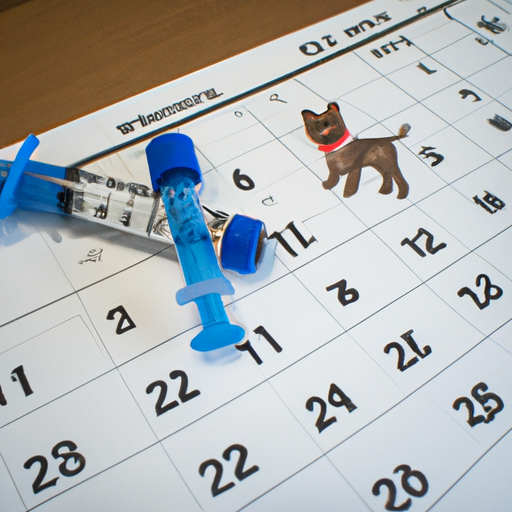Understanding Rabies and Its Impact on Dogs
Rabies is a fatal, viral disease that affects the central nervous system of animals, including dogs. It’s crucial for you, as a caregiver, to understand the severity of this disease. In the unfortunate scenario that your dog contracts rabies, the disease can progress quickly and can be fatal. Vaccination is the best way to protect your pet and prevent the spread of this disease.
The Importance of Rabies Vaccination for Dogs
Rabies shots for dogs are not just important—they are essential. In fact, in many places, they are the law. Vaccination not only protects your dog, but it also safeguards you and your family from potential exposure to this deadly disease. The vaccine stimulates your pet’s immune response, so if they ever come in contact with the virus, their body is ready to fight it off.
The Frequency of Rabies Shots for Dogs
The frequency of rabies shots for dogs can vary based on factors such as your dog’s age, health status, and the local laws in your area. Here’s a general guideline:
- Puppy: First rabies shot at 12-16 weeks of age.
- Dog older than 16 weeks: If the dog has never been vaccinated, they should receive the vaccine as soon as possible.
- Booster shots: Typically, after the first vaccination, a booster is needed after one year, and then every three years following.
| Dog’s Age/Status | Rabies Vaccination Schedule |
|---|---|
| Puppy | 12-16 weeks of age |
| Older than 16 weeks (never vaccinated) | As soon as possible |
| Booster shots | After 1 year, then every 3 years |
Recognizing Rabies Symptoms in Dogs
If your dog has not been vaccinated and you suspect exposure to rabies, it’s crucial to recognize the symptoms. These generally include drastic behavior changes, aggression, drooling, difficulty swallowing, paralysis, and even death. If you notice any of these signs, contact your vet immediately.
Protecting Your Dog from Rabies
Besides vaccination, there are several other precautions you can take to protect your pooch from rabies:
- Keep your pet indoors or supervise them while they’re outdoors.
- Avoid contact with wild animals, especially those acting strangely.
- Keep your property free of food or garbage that can attract wild animals.
Frequently Asked Questions
Q1: My dog is an indoor dog. Does he still need a rabies shot?
Yes. Even indoor dogs can potentially come into contact with the rabies virus.
Q2: Are rabies vaccines safe for my dog?
Yes. Rabies vaccines are considered safe for most dogs.
Q3: Can my puppy get a rabies vaccine?
Yes, but usually not before 12 weeks of age. Your vet will provide the best guidance.
Q4: How often does my dog need a rabies shot?
After the initial vaccine and one-year booster, most dogs will need a shot every three years.
Q5: What should I do if I think my dog has been exposed to rabies?
Contact your vet immediately. They can guide you on the next steps to take.
Stay informed, stay vigilant, and take the necessary steps to ensure your furry friend stays healthy and free of rabies.



